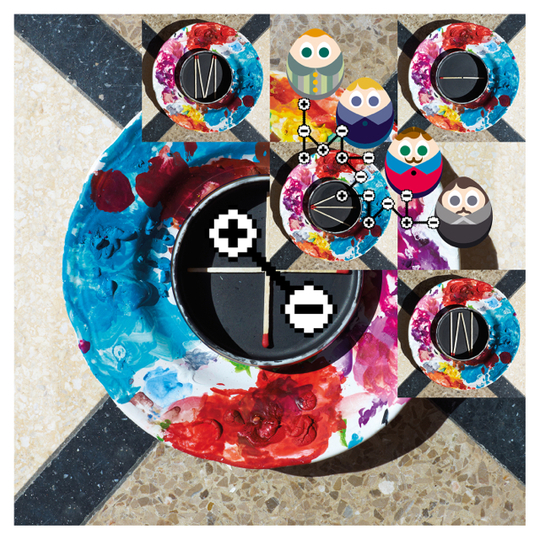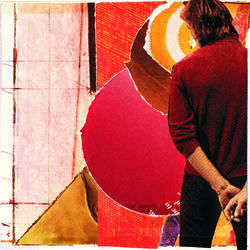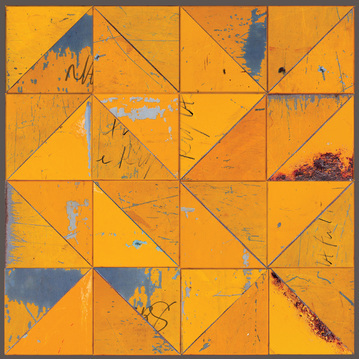I might be wrong, but it strikes me that Mew are a band especially beloved of musicians. It’s not hard to see why. Over the course of what has now become a long career, the Danish quartet have, it seems, become increasingly fearless. This, their first album since 2009’s No More Stories… continues their grand tradition. With a heavy nod to Eighties synth pop, more than a hint of Brian Eno and with the soaring vocals of Jonas Bjerre ever present, + - feels like another Mew album made on their own terms, just as it has so obviously been made at their own pace.
I first came upon Mew in 2006 (late to the party as ever). During the recording of an ill-fated single for my former band, our producer sat me down over breakfast and made me listen to Frengers. I can’t remember what I ate that day, but I can remember what Frengers did to me. As it unfolded its glorious depths, I was dumbfounded. In my sheltered indie-boy musical life to this point, I had never encountered a guitar band doing things like this. Everything seemed so right, so precise, yet so filled with intensity, angst and passion. By the time ‘Comforting Sounds’s thunderous instrumental coda was building, layer upon incendiary layer, I was having a full-on religious experience, right there in the kitchen. I don’t think he knew what to make of it. I’ve not been invited back since. But Mew have stuck with me.
As they progressed through the last decade, developing their sound, always seeming to be several dozen steps ahead of the scope mine and many others’ musical imaginations, I sought to keep up. This is a band that makes you work. Not for Mew the indignity of spoon-fed saccharine pop nuggets. Far from it. The satisfaction of listening to a band such as them is that moment, which can come immediately, but at other times can take actual toil on the part of the listener, when it all clicks, it all makes sense, the world is placed once again on its rightful orbit, and Mew, far from being pretentious and way, way out-there somewhere, are in fact one of the greatest bands in the world.
The eagle-eyed amongst you will note that I’ve yet to comment on any of this new album’s individual tracks. You probably came here wanting to know what the album sounds like. It sounds like Mew. I don’t really know how else (apart from the lazy comparison in the first paragraph) to describe it. That’s because this is best consumed as a whole. It is a proper album, not just a collection of songs randomly spliced together. If you really need to know what parts of it sound like though, the next paragraph is just for you.
There’s the swooping synth pop of ‘Satellites’ which feels immediately like home with its swirling arpeggios and a vocal entry which is quintessential Mew. ‘My Complications’ (featuring a trademark turn from Bloc Party’s Russell Lissack) and ‘Rows’ remind of bygone days when driving guitars were at the forefront of Mew’s ideology. ‘The Night Believer’ is a skewed pop song whose chord and melodic changes are unfathomable and yet absolutely right. It might even, whisper it, be a radio song. Closer ‘Cross the River On Your Own’ begins all understated, weaves all over the place, carried by some beautiful piano before building to a crescendo which never quite explodes and is all the more satisfying for that fact.
Co-produced by Michael Beinhorm, and mixed by Rich Costey, this feels like a real burst of good form on Mew’s part. It’s not a return to form. They never lost it. What we find from Mew in 2015 is the most complete expression of their many facets ever to have been committed to tape for a single album. If you like Mew, you’ll like this. If you don’t like Mew, this is as good a place as any to begin, or to rekindle, your love affair with a wonderful band.
-
7Haydon Spenceley's Score






















